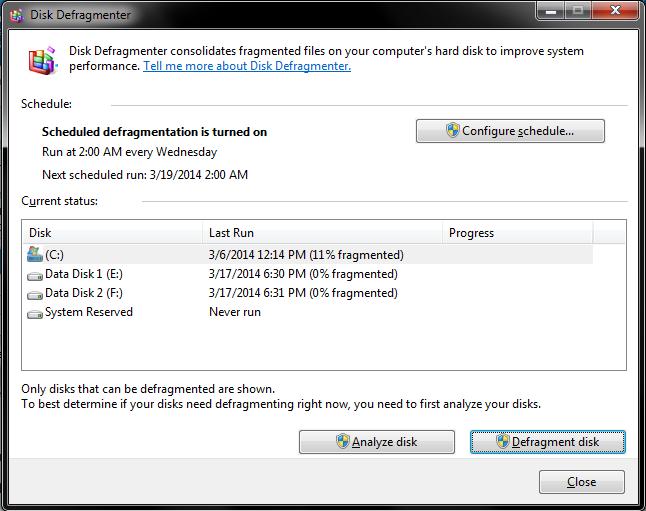New
#1
How Windows 7 defrag schedule work
I was playing around with the default Windows 7 defrag schedule and still can't figure how it work exactly.
The default schedule is set to start at 1h am wednesday with 3 minutes idle condition. Their is also a settings that set the defrag to start as soon as it can if a schedule is missed. If my understanding is right, if the computer is close in the night of wednesday to thursday, it will start to defrag next time it will be open and idle for 3 minutes. But what happen if you open your computer on friday, do some work and let it idle 3 mins. The defrag start but then you start back using your computer before the end of the defrag. Do the defrag stop completly and the next scheduled start is next wednesday ? Do it only put itself in pause until you idle again ? Do it put iself in pause until you idle again or stop automatically if too many changes are made to the filesystem ?
Anyway thanks if you have any info regarding this.
Edit : You can see the details of the schedule like this : http://www.addictivetips.com/windows...tion-in-vista/


 Quote
Quote Oopsie!
Oopsie! 


